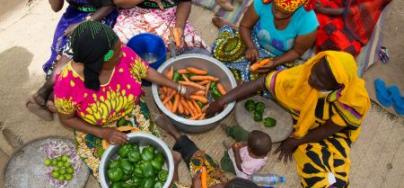
global food production
-
 14 September 2019
14 September 2019 -

Asgedech, Ethiopian Female Food Hero: ‘’I never give up, that is the secret of my successes”
29 August 2018 -

Carolina, Tanzanian Female Food Hero: “When women fight, nothing can stop them”
29 August 2018 -

Monica, Nigerian Female Food Hero: “I’m a hard-working woman, helping other women”
29 August 2018 -

Celebrating women farmers: Oxfam’s Female Food Heroes competition
28 August 2018 -

Behind the seafood in our markets: stories of human suffering
4 July 2018 -

About the campaign
20 June 2018 -
Just five food commodities produce more greenhouse gases than any country except emissions giants China and the US
26 June 2016 -
World Bank vision for a New Climate Normal - Oxfam Reaction
23 November 2014